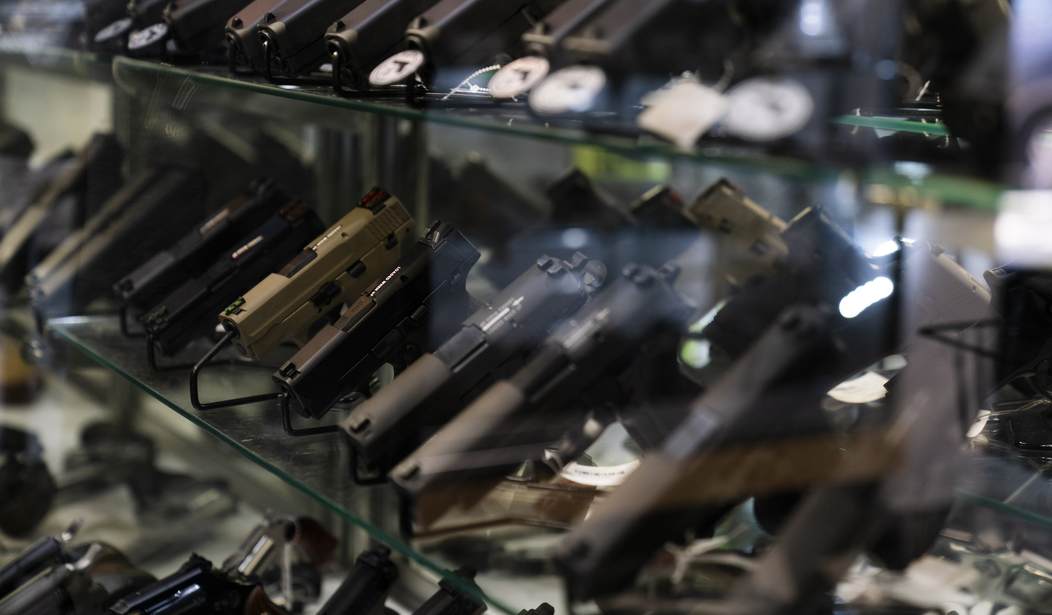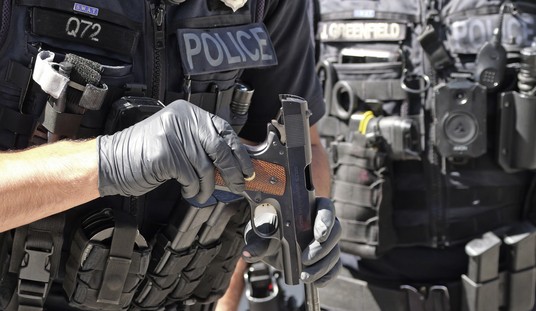No one clicks on a link to The Atlantic expecting to see anything pro-gun. There’s a reason for that, of course.
And today, I’m not going to be talking about any kind of exception.
You see, The Atlantic loves gun control. The vast majority of its writers, if not all, like gun control. They want to see anti-gun regulations proliferate.
Yet after Bruen, that seems less likely. After all, the text and history standard laid out in that decision makes it harder to justify anti-gun regulations.
Though, in fairness, The Atlantic gives it the old college try. Yet in doing so, they present some incredibly problematic behavior as perfectly acceptable.
In the summer of 1619, the leaders of the fledgling Jamestown colony came together as the first general assembly to enact “just Laws for the happy guiding and governing of the people there inhabiting.” Consisting of the governor, Sir George Yeardley; his four councillors; and 22 elected “burgesses,” or representatives, the group approved more than 30 measures. Among them was the nation’s first gun law:That no man do sell or give any Indians any piece, shot, or powder, or any other arms offensive or defensive, upon pain of being held a traitor to the colony and of being hanged as soon as the fact is proved, without all redemption.After that early example of gun control came many more laws placing restrictions on the ownership and use of firearms. If guns have always been part of American society, so have gun laws.This fact might come as a surprise to some gun-rights advocates, who seem to believe that America’s past was one of unregulated gun ownership. That view received a big assist in 2022, when the Supreme Court declared in New York State Rifle & Pistol Association Inc. v. Bruen that the constitutionality of modern gun laws depends on whether they are “consistent with this Nation’s historical tradition of firearm regulation.” In other words, the constitutional standard for any modern gun law boils down to whether you can find a good precedent for it back in the 1700s or 1800s.The advocates’ assumption is that such precedents are few and far between, but thanks to the work of researchers and the digitization of archival material, thousands of old gun laws, of every imaginable variety, are now available for reference. Far from being exceptional in American history, gun-control regulations are the default. If Bruen was designed to nullify the constitutional basis for many gun laws, it ought to fail.
That’s a pretty bold assertion. It’s just too bad that they’re not looking at some of those laws all that critically.
What do I mean? I mean that the vast majority of these regulations weren’t so much about controlling guns as disarming segments of the population due to bigotry.
In fact, The Atlantic even touches on this:
Because of the constant conflict between Indigenous people and European settlers in the early colonial period, virtually every colony enacted laws similar to Jamestown’s to keep firearms out of the hands of “hostiles,” ineffective as the laws generally were. Over the two centuries that followed, and up to the Civil War, the pervasive fear of enslaved persons’ rebellion prompted many colonies and, later, states to enact laws to prevent their obtaining guns. Gun regulations in the antebellum period, however, were not all about bans: At least 11 states enacted licensing laws that allowed—usually under some form of supervision—enslaved people and free Black people to carry weapons.
Throughout this long period in the history of the republic, up until the beginning of the 20th century, gun laws placed conditions or restrictions on weapons access for a wide variety of citizens—in particular, indentured servants, vagrants, non-Protestants, those who refused to swear an oath of loyalty to the government, felons, foreigners, minors, and those under the influence of alcohol. Numerous laws regulated hunting practices, as well as firearms’ carry, use, storage, and transportation; regulated the manufacture, inspection, storage, and sale of firearms; imposed gun licensing; and restricted dangerous or unusual weapons.
In other words, anyone who wasn’t part of the majority was disarmed by law. Only a few of these were exceptions, such as disarming felons and restrictions against those intoxicated from using firearms.
What strikes me as odd about this, though, is that The Atlantic is full of people who gleefully watched Confederate memorials toppled and anything named after someone with even a hint of racism be renamed, all because of the problematic ties to the sins of the past, while seemingly celebrating other bigoted laws.
In fact, contrary to what The Atlantic may think, most gun rights advocates are well aware of these early gun control laws. We know the origins of gun control and know this wasn’t a modern invention.
Yet the bigoted nature of most of these laws represents a problem in and of itself. It also illustrates that gun control has never been about guns, but about people.
In a way, nothing has changed.
Today, gun control is more about disarming people Democrats don’t like, namely people like you and me. Sure, there are Democrats who own guns. There are even some that outright oppose gun control. Yet for the most part, those who keep and bear arms are conservatives and libertarians, people opposed to much of the progressive agenda.
After all, if it was really about reducing crime, why focus so much on lawful gun owners?
Then we have the fact that the people who actually represent a problem, namely the criminals, are given a pass by Democrats and allowed right back on the streets.
Of course, The Atlantic doesn’t get into that.
Instead, they now present past bigotry as a good thing, all because it’s convenient to their current goals. Pretty pathetic, if you ask me.







Join the conversation as a VIP Member